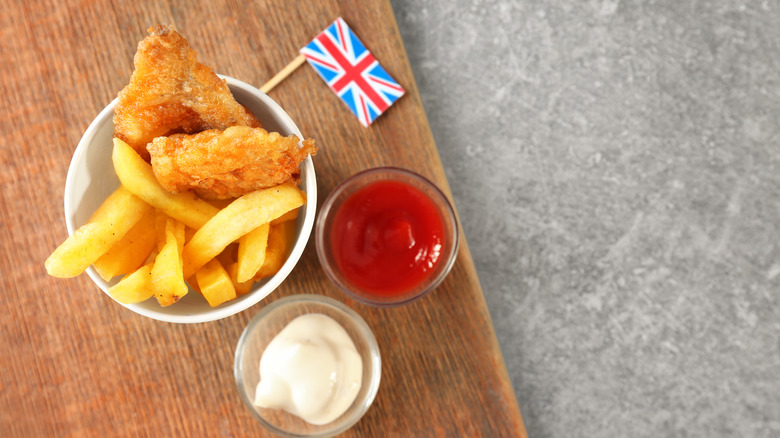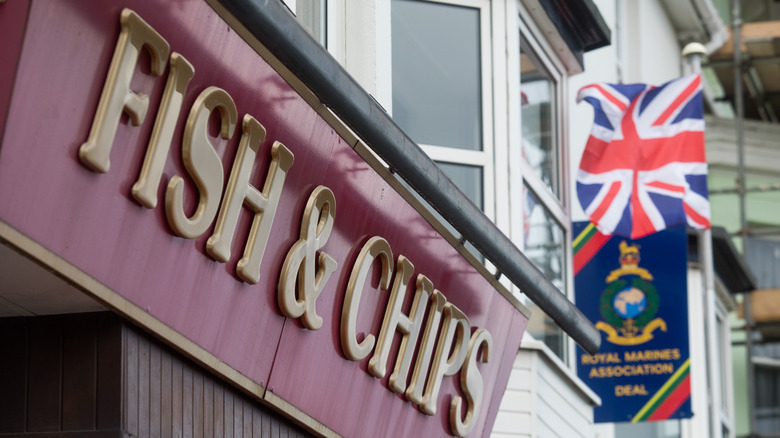Why Fish And Chip Shops Across The UK Are In Trouble
Fish and chips might be the most British thing out there, besides the Queen herself. According to Great British Mag, roughly 382 million baskets of fish and chips are sold in the U.K. every year. The dish is so popular that even the U.S. is smattered with fish and chips restaurants. But fish and chips shops overseas, or "chippies," as the Brits call them, face some trouble resulting from international fallout.
Since the invasion in late February, the Russia-Ukraine conflict has driven up global trade price. The impact is hitting particularly hard because it affects staple goods that most folks use every day. Per the Wall Street Journal, approximately 8% of all crude oil used in the US in 2021 was imported from Russia. Our reliance on Russian oil, it says, and the recent scarcity of those exports, is driving the average price of gasoline to well over $4 a gallon nationwide.
The sharp price rise has massively impacted the food and agriculture markets as well. Wheat prices have increased 7.62% to $10.59 per bushel in America, per CNBC, as Russia and Ukraine collectively make up 29% of all global wheat exports, according to FOX Business. Likewise, fertilizer futures have seen a 32% price increase since the invasion, reports global agriculture analytics system Gro Intelligence. In the last 18 months, it says, fertilizer prices worldwide have more than doubled.
As the conflict continues to escalate and the price of cod and cooking oil skyrockets, U.K. chippies are in jeopardy.
Cod save the queen
The fish and chips industry sources 40% of its cod and haddock from Russia, per Sky News. Plus, nearly half of the global sunflower oil supply comes from Ukraine, reports TIME.
Ievgan Osypov, CEO of Kernel, Ukraine's largest sunflower oil producer, says the embargo on port facilities is to blame for the global shortage, via Bloomberg. He explains that Ukraine's Black Sea port is blocked, and there is only one point of access on the western border to facilitate foreign trade. Before the Russian invasion, according to Osypov, Ukraine exported an average of 525,000 tons of sunflower oil monthly. Its exports have since been reduced by 95%.
Andrew Crook, National Federation of Fish Friers president, explains why the conflict is making such a splash for British fish markets, via CNN. The increased price of ingredients has caused the average fish and chips basket to increase to 8.50 euros. In addition, British news outlet Evening Standard reports that supermarkets across the U.K. have already implemented restrictions on how much cooking oil shoppers can purchase due to shortages caused by the Russian invasion.
According to social historian John K. Walton, fish and chips have been both a cultural flag and an essential dietary staple to the British working class since before the Second World War; when customers walk into a chippy, they expect it to be affordable. If conditions don't change, Crook estimates that a third of England's 10,000 fish and chips shops could close in just nine months.

